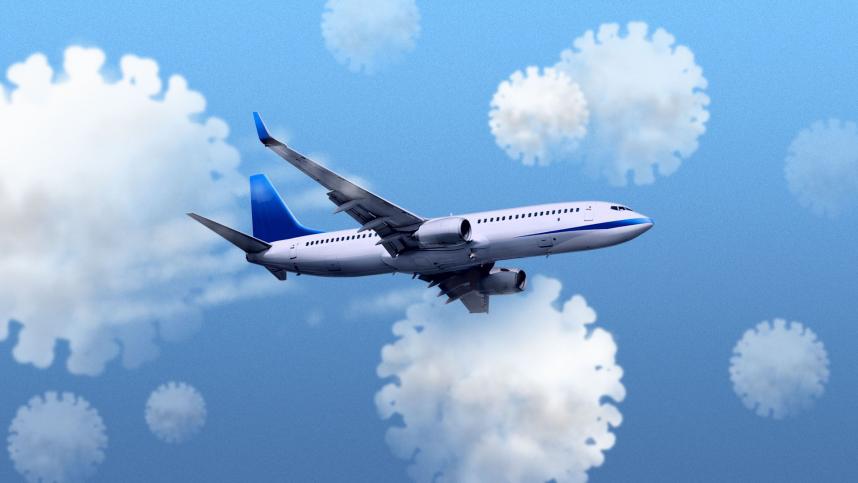
The possibility of contracting Covid-19 on board a plane is “virtually non-existent” when passengers wear masks and adhere to hygiene rules, according to study released on Thursday by the US Department of Defense and United Airlines.
The Commercial Aircraft Cabin Aerosol Dispersion Test conducted on board United Airline’s Boeing 767 and 777 jets by US Transportation Command (TRANSCOM), found that 99.99 percent of particles released into the air from an infected person wearing a mask were removed from the airplane cabin within six minutes of being released. According to the same study, planes filter air faster than an average home or operating room.
A total of 300 tests were conducted on inflight mannequins. According to the results, when masks are worn there is only a 0.003 percent chance that particles from one passenger will transmit to the passenger next to them.
At the same time, research on cabin airflow found that only 0.001 percent of infected air particles could enter the breathing zone of seated passengers wearing a mask.
This, according to United Airlines, makes the risk of Covid-19 exposure onboard its aircraft is “virtually non-existent”, even on a 12-hour flight.
IATA welcomes report
The International Air Transport Association (IATA) welcomed the release of the results of testing by US Transcom confirming the low risk of COVID-19 transmission onboard an aircraft.
The news follows a similar study carried out last week by IATA which found that among 1.2 billion flyers, there have been only 44 reported cases of the coronavirus attributed to possible inflight transmission.
IATA research said the risk of contracting Covid-19 on a plane appears to be “in the same category as being struck by lightning”. Indicatively, last month, major US airline CEOs confirmed that their employees were reporting fewer Covid-19 incidents compared to the general public.
“The US Transcom research provides further evidence that the risk of infection onboard an aircraft appears to be very low, and certainly lower than many other indoor environments,” said IATA Director General and CEO Alexandre de Juniac.